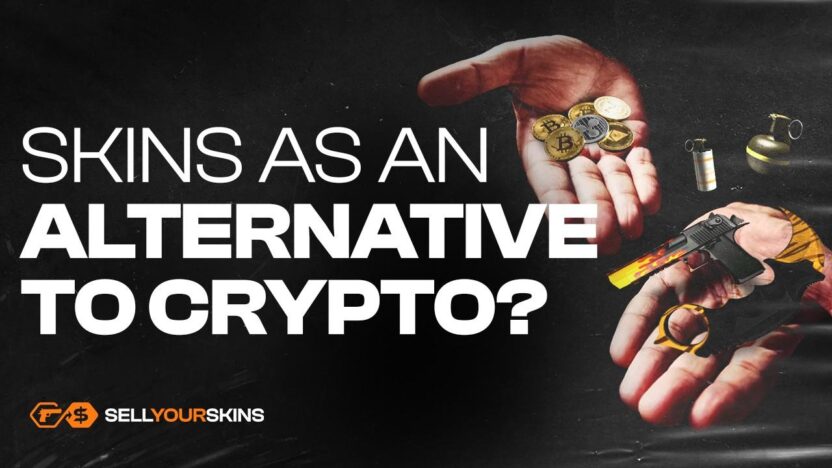Skins in CS2 / CS:GO aren’t just virtual decorations anymore. More and more people treat them as a kind of investment, with values sometimes comparable to cryptocurrencies like Bitcoin or Ethereum. Unique skins, such as the AWP Dragon Lore or AK-47 Fire Serpent, have started acting like digital gold – something to invest in or even speculate on. But can skins really be a good alternative to cryptocurrencies?
Key Takeaways:
- For many players, skins are a great alternative to popular cryptocurrencies like Bitcoin or Ethereum. Their market value can reach astronomical amounts – a good example is the “Blue Gem” Karambit Case Hardened.
- The skin market is similar to the crypto market – it’s based on limited supply and high demand. But unlike cryptocurrencies, skins also offer emotional value, which further influences their price.
- Investing in skins comes with risks, such as dependency on Valve, scams, or price fluctuations. It’s worth using sales platforms like SellYourSkins, which allow for fast and secure exchange of skins for real money.
Why do Skins Compete with Cryptocurrencies?
The skins market works similarly to cryptocurrencies, because both gain value from limited availability and high demand. For example, the M4A4 Howl skin was discontinued due to legal issues, which made it rare – just like Bitcoin, limited to 21 million tokens. On top of that, skins have something cryptocurrencies don’t: emotional and collectible value. Unique designs, colors, or stories connected to skins (like weapons used by famous esports players) make them attractive and expensive. A great example is the Karambit Case Hardened “Blue Gem”, valued at hundreds of thousands of dollars. Just as Dogecoin became popular because of memes, skins in CS2 and CS:GO grow in value because of their gaming community.
Is Investing in Skins Safe?
Just like with cryptocurrencies, investments here are never 100% certain. Why? Mainly because the value of skins largely depends on Valve’s policies, which influence the market – for example, by introducing new skins or changing trade rules. Unlike cryptocurrencies such as Ethereum, where decentralization gives investors independence, the skin market is completely controlled by a single company. Additionally, there’s a risk of scams and theft in skin trading. Cryptocurrencies also carry such risks, but investors can use security tools like Ledger or Trezor hardware wallets, which give more control over their assets. On top of that, skin prices are very volatile. When the new version of the game came out, some CS:GO skins dropped in price, while others – like the AK-47 Vulcan – increased in value.
Got skins? Sell them on SellYourSkins!
If you have skins you no longer need, or you want to quickly cash out your investment – use the SellYourSkins platform. It’s a place where you can easily and safely sell your CS2 or CS:GO items and get real money sent straight to your account – faster than cashing out profits from cryptocurrencies like Litecoin or Cardano. Selling is super simple and done through our custom bot, which buys your skins automatically – no long waiting for buyers. Visit our homepage and see for yourself why we’re the safest company on the market.



